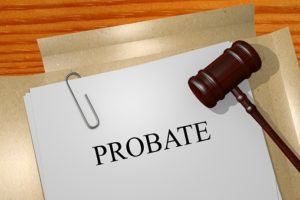How You Can Limit Your Probate Estate in Tennessee
The probate process can be both complex and costly. You can minimize the assets that must go through probate by taking advantage of nonprobate transfers, which shift assets so that they are not part of your probate estate at the time of your passing. There are several strategies that you can use for different types of property to accomplish this goal.
Real property
Your real property may be one of your most valuable assets. You can title your property as joint tenants with the right of survivorship. When you own property in this manner, the surviving owner automatically becomes the sole owner of the property after your passing. The property does not go through probate.
Tennessee also allows for property to be titled as tenants by the entirety. This designation is reserved for spouses who co-own property. When one spouse passes away, the property passes directly to the surviving spouse without the need for probate proceedings.
Payable-on-death accounts
A payable-on-death (POD) account names a beneficiary to receive your property after you pass away. The beneficiary has no immediate right to your property. You can list a POD beneficiary on a checking account, savings account and other financial accounts. When you pass away, the person you name receives whatever money was in the account.
Transfer-on-death accounts
Other accounts allow you to complete a form that transfers certain accounts to the person of your choice upon your death. These accounts are often made up of securities like stocks and bonds. You can prepare a form with your broker that instructs the asset to be transferred and retitled at the time of your death.
Beneficiary designation
If you have a life insurance policy, an IRA, a 401(k) plan, or another type of retirement account, you can (and should) name a beneficiary for each, so the funds will be exempt from probate. If you fail to list a beneficiary for these assets, your estate may automatically inherit the funds and have to go through the probate process.
Living trust
A living trust is a useful tool that allows you to leave assets to individuals after your passing while still enabling you to use them during your lifetime. You transfer the property during your lifetime to the trust. Because the trust owns the property at your death, the assets contained in it are not subject to the probate process.
For help with making these nonprobate transfers, contact the Epstein Law Firm in Chattanooga. We provide professional assistance with a wide range of estate matters to clients in Tennessee and Georgia. Call us at 423-265-5100 or contact us online to arrange a free consultation.


